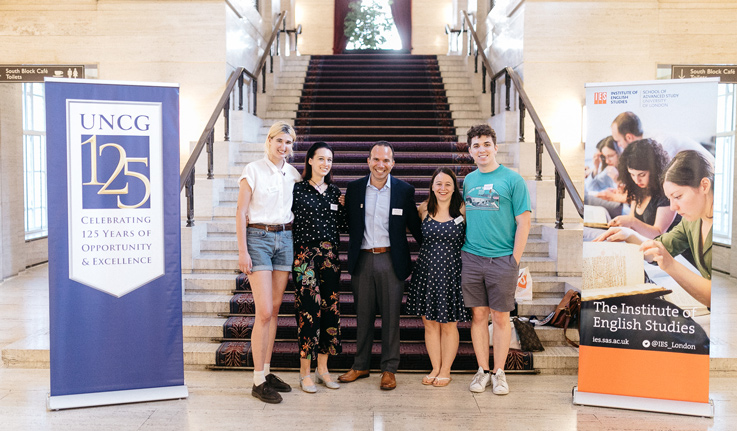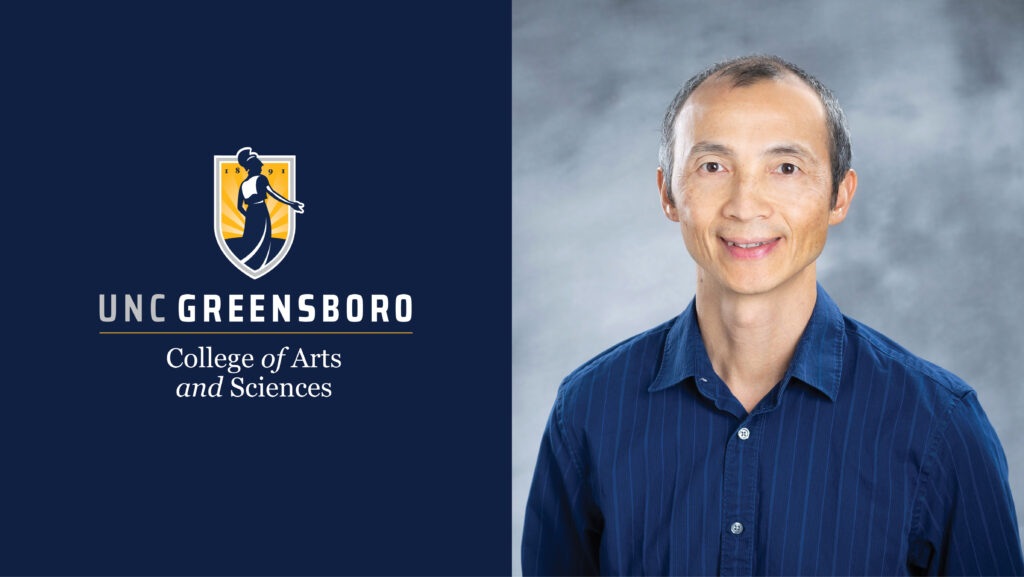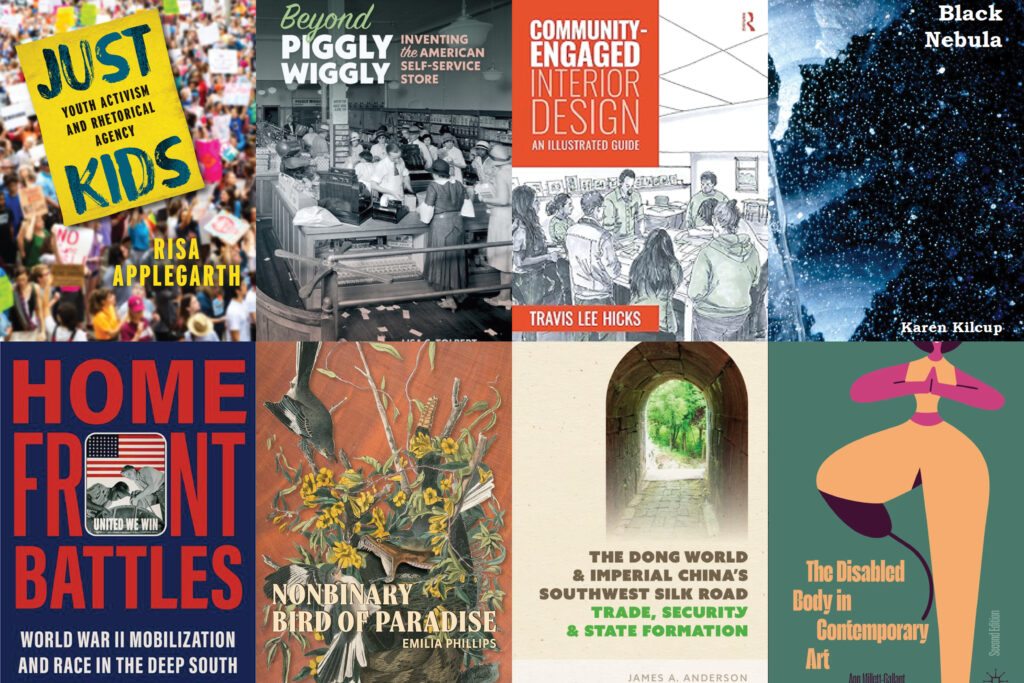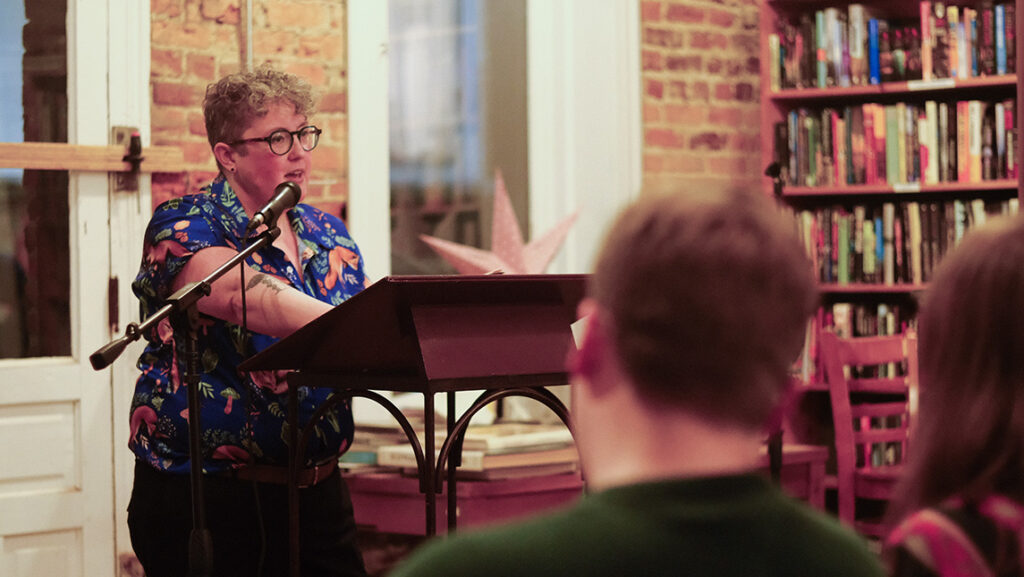At UNC Greensboro, the study of literature can be a lived experience.
This summer, four UNCG students traveled to London to attend the T.S. Eliot International Summer School, a highly prestigious program dedicated to the study of Eliot – the expatriate modernist poet, critic and dramatist who drew crowds of up to 15,000 at the peak of his career in the mid-1950s.
Even non-English majors may remember Eliot’s “The Love Song of J. Alfred Prufrock” and the World War I poem “The Waste Land,” often regarded as the most influential poem of the 20th century. Eliot’s poems are behind the lyrics of the hit musical “Cats,” and his work also inspired renowned American poet and critic Randall Jarrell, who taught in UNCG’s Department of English.
The Spartans who ventured to London in pursuit of a greater understanding of T.S. Eliot were accompanied by Associate Professor of English Anthony Cuda, who has been named the new director of the International School. Cuda has lectured in the program since it opened in 2009, and is one of the editors of the award-winning Eliot Editorial Project that was initiated the same year. Cuda’s appointment as executive director provides him with the opportunity to nurture a new generation of Eliot researchers and to connect them with the world’s most accomplished scholars of Eliot’s work.
During the nine-day program, students and faculty not only visited some of London’s best cultural sites such as the British Museum, the National Gallery and the Globe Theatre, but also locations that appear in the work of T.S. Eliot, allowing them to trace the physical aspects of the poems in a direct page-to-life experience. They took a “Waste Land” tour of London and ventured to Little Gidding – a small town 85 miles north of London that appears prominently in Eliot’s “Four Quartets.” There they saw the 17th-century Anglican chapel that Eliot visited in 1936, and even a humble pig sty that makes a brief appearance in the poem.
“In the study of literature, sometimes setting gets thrown by the wayside, but I liked seeing the ways Eliot was in touch with geographical space, living and vibrant,” said Kayla Forrest, whose dissertation work is focused on how geographical spaces are viewed and translated through literature. Forrest looks forward to bringing that lived experience to her writing students this fall.
“I like to look at the real relationships with the spaces, the places we live and work and how that can be poetic. Spaces can be new or dangerous – we all have that experience. I like bringing that to the forefront and showing how it affects poetic narrative.”
This year, the T.S. Eliot International School hosted students from more than nine different countries, including France, Russia, Italy, Romania, India and Korea. The global diversity has been typical for the school since the beginning, which is fitting because, according to Cuda and other scholars of modern literature, Eliot’s work has a distinctly global quality. Eliot was born in Missouri, went to school in New England, but lived the latter half of his life as a British citizen. Residing in the cultural capital of London put him in touch with a variety of scholars and artists across Europe and beyond.
“He was looking for sense of place, not in a geographical sense, but culturally,” said Cuda. “Because he was a poet who struggled with his sense of identity and rootlessness, his work appeals to scholars and readers contemplating rootlessness and seeking a global community.”
Being able to work alongside Eliot scholars from countries across the globe allowed the UNCG students ‒ including two undergraduates ‒ to engage in informed discussions concerning translation, and also contemplate universal questions within Eliot’s poetry through an international lens.
“As a man of modernity, Eliot asks the same questions a lot of us ask: What should we do? What does it mean to be? And if we don’t know what to do, what do we make of that?” said graduate student Elysia Balavage. “I think questions of reality translate really well across culture. And we’re still asking a lot of the same questions Eliot asked.”
UNCG students who attended the T.S. Eliot International Summer School received funding from UNCG’s International Programs Center, the College of Arts and Sciences and the Department of English.
For more information about the T. S. Eliot International Summer School, contact Cuda at [email protected] or visit the program website.
By Susan Kirby-Smith
[Original Story]






